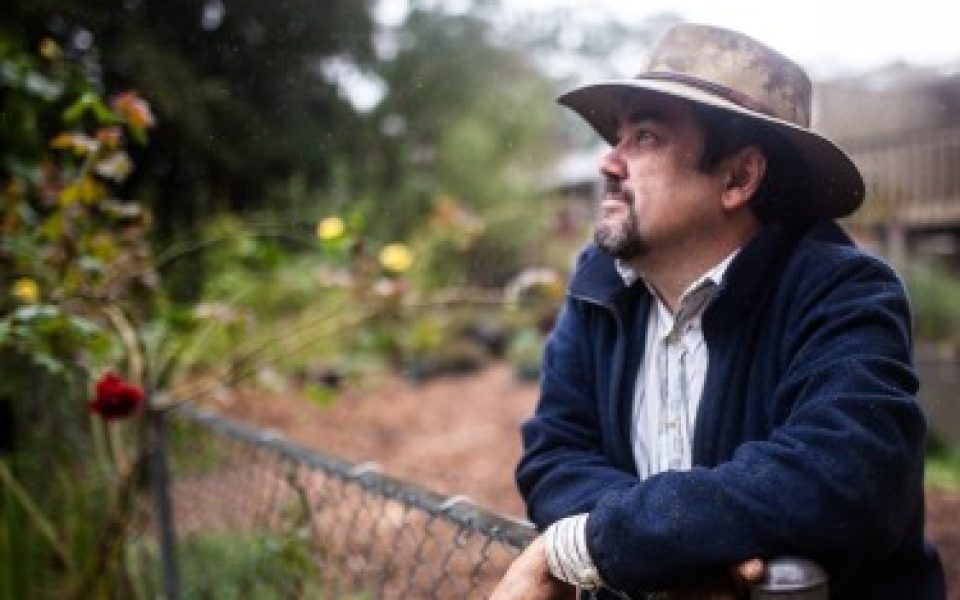photos by Caleb Smallwood, words by Brian Clarey
It’s not the patch of ground you’re given; it’s what you do with it.
Soil can be enriched and tilled. Space can be devoted as a place for growing. Water flows everywhere.
If you can grow a lawn, you can probably grow food. But you can’t eat grass.
Urban farmers are increasingly taking back the land, starting in their own backyards and branching out to community gardening spaces. They do it for food, sure, for themselves and the tables of those in need. They do it for the sheer love of planting something in the ground and watching it grow. They do it because they can: Little patches of ground are everywhere, ready to spring forth with edible life.
In the cities of the Triad, not so far removed from our state’s agricultural roots, these five urban gardeners ply their craft. They make little impact on the land or the supermarket’s overall effect on humanity’s food chain, but together they make a case for self-sufficiency, and a stand against hunger in the places that need it most.
Bobbe Wright
Year-round grower, Greensboro
Bobbe Wright’s divided the growing space on his Greensboro property into three climate zones, allowing him to grow tropical fruits like bananas, citrus fruits and pomegranates. He also tends Malibar spinach, an off-season perennial that grows leaves all summer and comes back every year.
Stephen Johnson
Craft farmer, Greensboro
Stephen Johnson took in his first harvest of sweet corn when he was just 11 years old at his boyhood home in Perth, Australia. “Food isn’t getting any cheaper,” he says, and farmers are going broke trying to keep up with Walmart’s bottom line. Home-growing isn’t necessarily cheaper, he says, but is more about the lifestyle and the craft. He goes as far as to make his own compost, free of broad-leaf pesticides that he says prevents his tomatoes and peppers from growing.
Sumpter Smith
Sustainable lifestylist, High Point
Between the chickens, the vegetable bed and the aquaponic system, Sumpter Smith puts something from his yard on his table every day. “Nothing makes you want to share more than having a huge crop.” he says. “I think people should get involved by growing their favorite vegetable in small scale and take it one year at a time.”
Tinece Payne
Natural-food forester, Greensboro
“Healthy Food is a right that many of us take for granted,” says Tinece Payne, who donates most of what she grows on two different sites at her Healing Springs farm to shelters and food pantries. “I would love if we all could connect to feed ourselves sustainably and promote a true sense of unity and togetherness through one of the most important commodities to foster a healthy life.”
Lorraine Mortis
Community Gardener, Winston-Salem
Among the plot-holders at Simon’s Green Acre Community Garden is Lorraine Mortis, who used seeds from the county co-op extension and a small grant to build a sustainable effort against hunger in her community. All her produce is grown in the organic tradition — she makes her own insecticide and compost — and everything, including her prize-winning jalapeños and white eggplants, gets donated to the hungry.
Join the First Amendment Society, a membership that goes directly to funding TCB‘s newsroom.
We believe that reporting can save the world.
The TCB First Amendment Society recognizes the vital role of a free, unfettered press with a bundling of local experiences designed to build community, and unique engagements with our newsroom that will help you understand, and shape, local journalism’s critical role in uplifting the people in our cities.
All revenue goes directly into the newsroom as reporters’ salaries and freelance commissions.


Just beautiful.
This paints a picture for a more hopeful world. Great article.